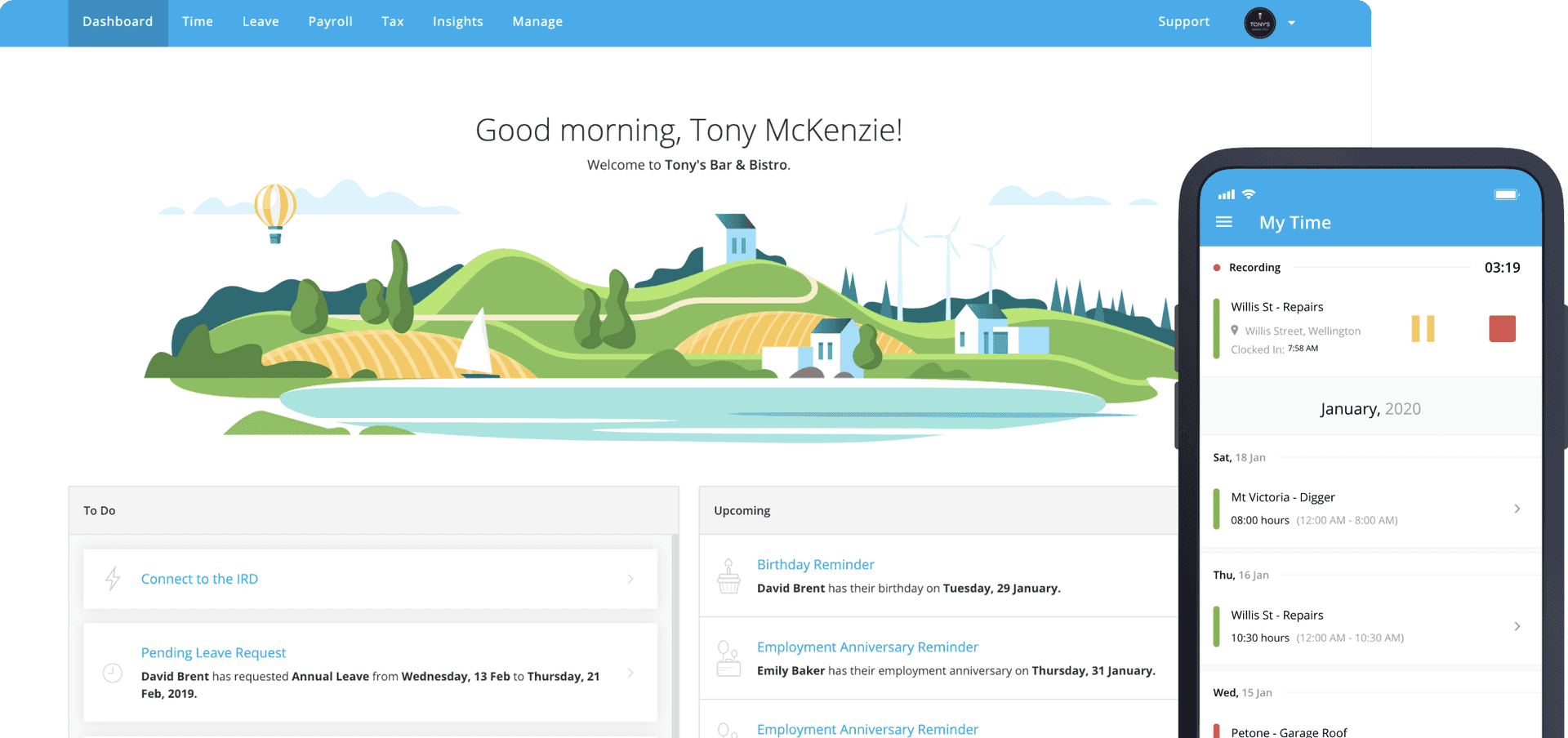Team Management
A Guide to Domestic Violence Leave
Heard about the new Domestic Violence Leave and wondering how it applies to your business? We’re here to help! Here’s a run through of the changes and your new responsibilities as an employer.
What is it?
From 1 April 2019, all employees in New Zealand are entitled to up to 10 days of paid leave per year to deal with the effects of domestic violence. Employees become entitled to domestic violence leave after six months of continuous employment.
Who can claim it?
Anyone affected by domestic violence, which means anyone who directly has or is experiencing domestic violence, or who takes care of a child who has experienced domestic violence and is under the age of 17.
This may include dealing with physical abuse, property damage, attending counselling services, leaving partners, finding new housing, and handling harassment and threats that could be negatively affecting their workplace performance.
Domestic Violence Leave is designed to be taken to deal with the effects of domestic violence, whether this occurred recently, a while ago or even before employment.
How is it calculated and paid out?
Domestic Violence Leave is paid at the employee’s relevant daily pay, just like Bereavement, Alternative Holiday, Public Holiday & Sick (BAPS) leave.
If it’s not possible or practicable to pay the employee using their relevant daily pay or their pay varies during the pay period in which the leave falls, they can instead be paid their average daily pay.
The rules of Domestic Violence Leave include:
Employees are entitled to Domestic Violence Leave once they’ve worked for an employer for over 6 months
Leave can be taken in advance (at the employer’s discretion)
Leave shouldn’t be paid out if not taken
Leave does not get carried over year to year
Casual employees have the same entitlements as permanent employees if within the last 6 months they’ve worked at least 40 hours per month, and 10 hours per week
Check out Employment New Zealand’s website for a detailed breakdown of the rules.
What else do you need to know?
Employees affected by domestic violence can also request a short-term variation to their working arrangements, which is similar to a flexible working request.
This is designed to ensure employee safety, such as changing their work location and contact details. As an employer, you have to urgently respond to this request (within 10 working days).
You have the right to decline this request if there is no proof domestic violence has occurred, or if this change will cause a serious issue within the business, including leaving the team short-staffed or meaning the business will lose money. We advise treading with care here due to the sensitive nature of domestic violence.
How should employers handle a Domestic Violence Leave request?
Obviously domestic violence is a sensitive subject and you should treat each case with care and discretion.
Remember that employers cannot treat employees unfavourably if the employee is or is suspected to be affected by domestic violence.
There are circumstances in law where employers can decline domestic violence leave requests or request evidence of domestic violence from the employee in question. Victims of domestic violence may be reluctant to share too many details with their employers so bear this in mind and take an empathetic approach.
If employees believe that their employer has made an unjust or unreasonable refusal under the new domestic violence leave provisions they can refer the matter to a Labour Inspector or undergo mediation.
If in doubt or if you find yourself presented with a challenging scenario seek the advice of an employment lawyer or HR professional.
Privacy is paramount
When it comes to Domestic Violence Leave you’ll need to respect the privacy of the employee involved and won’t be able to tell other employees where their colleague has gone.
We also recommend you don’t include the term “Domestic Violence Leave” as a line item on an employee’s payslip. Your payroll system should allow you to change the description to something more discreet.
What do employers need to do to prepare?
Employers are required to make information available to employees about domestic violence support services, such as leaflets or brochures. It would also be worthwhile drafting an action plan so you’ve got processes in place for when an employee requests domestic violence leave.
Resources for victims and where to get help: Ministry for Women and New Zealand Government provide extensive lists of organisations that can be contacted for support and information about domestic violence. Employers and victims can also contact Shine’s Helpline on 0508-744-633.






